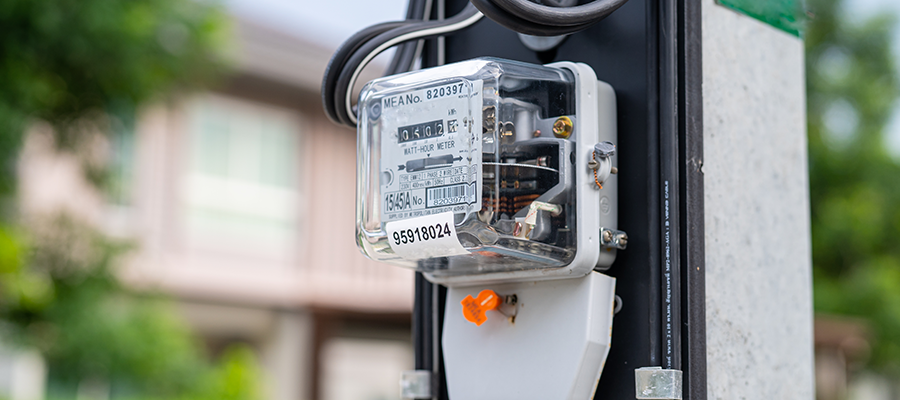Smart Meters’ Economic Impact on Utility Companies

Smart Meters’ Economic Impact on Utility Companies
Electricity demand is expected to grow by 30% by 2030 after nearly a decade of nearly zero growth. The increase is attributed to the expansion of industries like data centers, robust investment in new and existing manufacturing sectors like semiconductors and batteries, and deployment of electric vehicles according to the U.S. Department of Energy’s (DOE) report released April 17, 2024.
Smart meter penetration is expected to increase in North America to 94% by 2029 according to Internet of Things (IoT) analyst firm, Berg Insight. They report that second-generation smart meter deployments are forecasted to be more than 80% of shipments at the end of 2023-2029. The report stated that intelligent grids are becoming an integral part of the development of smart cities and that smart meters can improve the reliability and resilience of energy supply. Because smart meters enable users to track their energy use, utility companies are predicted to save $157 billion by 2035, according to Business Insider,
According to the DOE, a smarter electrical grid can save energy, protect consumers, safeguard our environment, and ultimately save money for all Americans.
The Benefits of Demand Response Through Smart Meters
Utilities can achieve economic, operational, and environmental benefits while enhancing customer engagement and satisfaction.
Energy and Cost Savings: Smart meters enable utility companies to implement demand response programs where they can incentivize consumers to reduce or shift their energy usage during peak times, leading to more balanced energy demand and reduced need for additional power plants. Smart meters have been found to reduce energy consumption by up to 10% by providing real-time feedback to consumers, leading to more energy-efficient behavior.
Utilities often rely on peaking power plants, a low-use, high-emitting plant that grid operators rely on during peak times. These power sources, often referred to as “peaker plants” need to fire up quickly and are almost entirely dependent on fossil fuels. Reducing peak demand decreases the need to activate these plants, saving costs.
By reducing peak demand, utilities can lower the overall price they pay for electricity on the wholesale market. Peak demand periods usually correspond to higher wholesale prices.
Grid Stability and Reliability: Utilities can maintain a more stable and reliable grid by spreading out electricity usage more evenly throughout the day. This reduces the risk of blackouts or brownouts caused by overloading the system. A more balanced load allows utilities to operate their systems more efficiently, which reduces wear and tear on equipment and expands the lifespan of infrastructure.
Environmental Benefits: Widespread adoption of smart meters could reduce carbon emissions by 48 million metric tons annually in the U.S. alone. IoT-enabled smart grids provide real-time monitoring of energy distribution. This allows utilities to optimize power generation and distribution, which means less waste and more reliable service. The National Renewable Energy Laboratory (NREL) and other studies indicate that smart meters play a crucial role in achieving cleaner energy goals by enabling better integration of renewable energy sources and enhancing grid reliability
Smart meters equipped with IoT sensors contribute to reducing carbon emissions by providing real-time data on energy usage, which allows consumers and utility companies to optimize energy consumption and shift demand away from peak times. Customers who reduce energy usage at peak times allow smart system energy to reduce reliance on additional power stations so they can make the most use of renewable energy, such as solar and wind. The reduction in power generation from fossil fuels leads to lower overall emissions.
Economic Benefits: Reduction in peak demand reduces costly investments in new generation, transmission, and distribution infrastructure needed to handle peak loads. Customers who participate in demand response programs can benefit from lower energy bills. By offering programs that help customers save money and reduce their environmental impact, utilities can improve customer satisfaction and loyalty.
Related Articles

By Tommy Combs, President, Bermex In the latest edition of the DIRT Report, the Common Ground Alliance (CGA) reveals that despite decades of progress in underground infrastructure damage prevention, the industry remains at a critical turning point. The 2024 data show a concerning plateau, and in some cases a reversal, in the trend of reducing[...]
Read More
Every year on Veterans Day, we pause to honor the men and women who have worn our nation’s uniform. They come from every background and every corner of the country, united by a common purpose: to serve something greater than themselves. Their service enriches our organization, and we are grateful for the impact they continue[...]
Read More
By Mark Green, Business Development Manager, Bermex Environmental responsibility and resource conservation are more than good PR; they have become critical, bottom-line imperatives. Utility companies find themselves at the forefront of a sustainability battle that extends far beyond their traditional operational boundaries. At the heart of this challenge lies a deceptively simple yet profound issue:[...]
Read More
By Thomas Gooch, Director of Operations, Bermex Every few minutes across the United States, someone digging into the ground accidentally strikes an underground utility line. The consequences of these incidents extend far beyond the immediate damage to pipes, cables, or equipment. Utility strikes represent an extremely expensive and dangerous infrastructure challenge. The Financial Impact According[...]
Read MoreCategories
Recent Posts
- Diffusing a Difficult Customer [Infographic] 10th Sep 2018
- Neighborhood Safety [Infographic] 24th Sep 2018
- Bermex Has Named Keith Pancake as New Safety Manager 02th Dec 2019